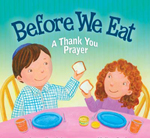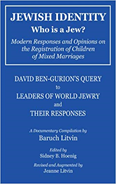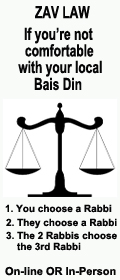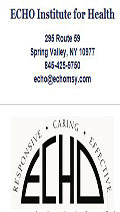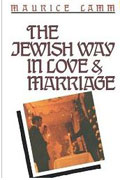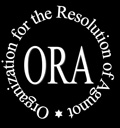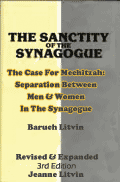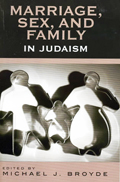Q & A

About Family
Can a parent be mochel (relinquish) the honor that is due to them?
- Yes. Shulchan Aruch (YD 240:19) writes that it is forbidden for a parent to be overly
strict regarding the honor that is due to them. - If a parent is strict, the child will find it difficult to fulfill his duties and the parent will be
causing the child to sin. - Rather, a parent should be forgiving & turn a blind eye & even relinquish their honor if necessary.
- Rebbi Akiva Eiger(ibid.) cites the Radvaz who writes that if a parent relinquishes his
honor, this will save the child from being punished if he does not display the proper honor,
but if the child does honor his parent, he will still be rewarded. - The Birkei Yosef (YD 240:13) proves that a parent can also be mochel the fear that is
due to him. - Parents may permit their children to sit in their seat or to contradict them.
- However, even though parents can forgo their honor, they cannot be mochel on their embarrassment or on their pain & embarrassing a parent is always forbidden.
What does it mean that one may not contradict a parent?
- If my father makes a mistake am I not permitted to correct him?
- There is much discussion in poskim as to the parameters of this halacha.
- The Prisha (YD 240:3) writes that it is only forbidden to contradict a parent if one does
not have proof. - You should not argue with your father just because you feel that he is wrong.
- But if there is definite proof that a mistake was made in religious matters, then one is
obligated to point this out. - The Gemara has many examples of Tana’im & Amora’im who disagreed with the rulings
of their fathers because they had proofs to the contrary. - Pischei Teshuva (YD 240:1) writes that if a father & son are studying Torah together,
the son may argue with his father even without a proof, since this is the method of delving
into Torah. - The Be’er Sheva (Sanhedrin 110a) writes that it is permissible to disagree with a parent,
but it must be done in a respectful manner. - Not contradicting a parent means, one should not say, “Father, you are wrong.”
- Rather, one must always speak to a parent in a respectful manner.
I did not show proper honor to my parents. Must I ask them forgiveness?
- One who transgresses a mitzva “bein adam l'chaveiro" (between man & his fellow man)
must ask forgiveness both from Hashem, for not heeding His commandment & from the
friend that was wronged. - For a mitzvah “bein adam la'Makov" between man & Hashem), one need only ask
forgiveness from Hashem. - The Minchas Chinuch (Mitzvah 33) is uncertain if honoring a parent is a mitzvah
(“bein adam l' chaveiro) -
On the one hand, a mitzvah of "bein adam l' chaveiro) generally applies equally to all
people & perhaps the extra honor that is due to a parent is a mitzvah "bein ada la Makom"obligation to the parent. - The Minchas Chinuch above leaves the question unanswered.
- Elsewhere (Mitzvah 364), the Minchas Chinuch writes that honoring parents falls under the category of mitzvos(“bein adam l' chaveiro).
- In practice, if one did not show proper respect, one must ask forgiveness from their
parents (Yalkut Yosef, Kibud Av V’aim1:12).
My father asks me to pass the plate of cookies, but I know that his doctor instructed him to watch his sugar.
if I don’t listen to my father, he becomes angry,
& says I am being disobedient.
Must I listen to my father even though I know it is bad for him?
- Sefer Chasidim (234) writes that even if a parent orders a child to bring food which
endangers the parent & swears that they will otherwise never forgive the child, the child
may still not bring their parents something which might endanger them. - The Mahari Malcho (cited by the Birkei Yosef YD 240:15) deduces from the wording
of the Sefer Chasidim that only if the food presents a potentially life-threatening danger
must the child not listen.
- However, if the food does not present a life-threatening danger, even though it is harmful
for the parent, the child must listen. - However, Yad Shaul (240:11) understood that the intent of the Sefer Chasidim was to
forbid serving any food that is harmful to the parent. - Sefer Kol Gadol (54) also agrees that the child should not listen in any case of harm.
- He explains that the child is not violating kibud av since the intent of the child is not to
disobey his father, but rather concern for his father’s well-being.
Is there a mitzvah to honor step-parents?
- There is a Torah obligation to honor a step-mother or a step-father so long as one’s
father or mother is still alive.
- Once the parent passes away, there is no further obligation to honor the step-parent.
- However, the Gemara (Kesubos 103a) relates that Rebbi Yehuda HaNasi instructed
his children before his passing to continue to show honor to their step-mother & this is
the accepted practice of all G-d fearing individuals even though it is not a formal
obligation (Aruch Hashulchan YD 240:43).
- The Birkei Yosef (YD 240:16) writes that one is obligated to show honor to their step-
mother even if their birth mother objects. - Honoring their step-mother is a means of honoring their father & the birth mother’s
objections do not remove this obligation. - However, Halachos Ketanos (1:28) writes that if there is a question of who should be
honored first (e.g one’s mother & step-mother both ask for a drink of water), one is
obligated to honor one’s mother first. - Though they are both Torah obligations, the honor that is due to a parent is greater
than that due to a step-parent.






